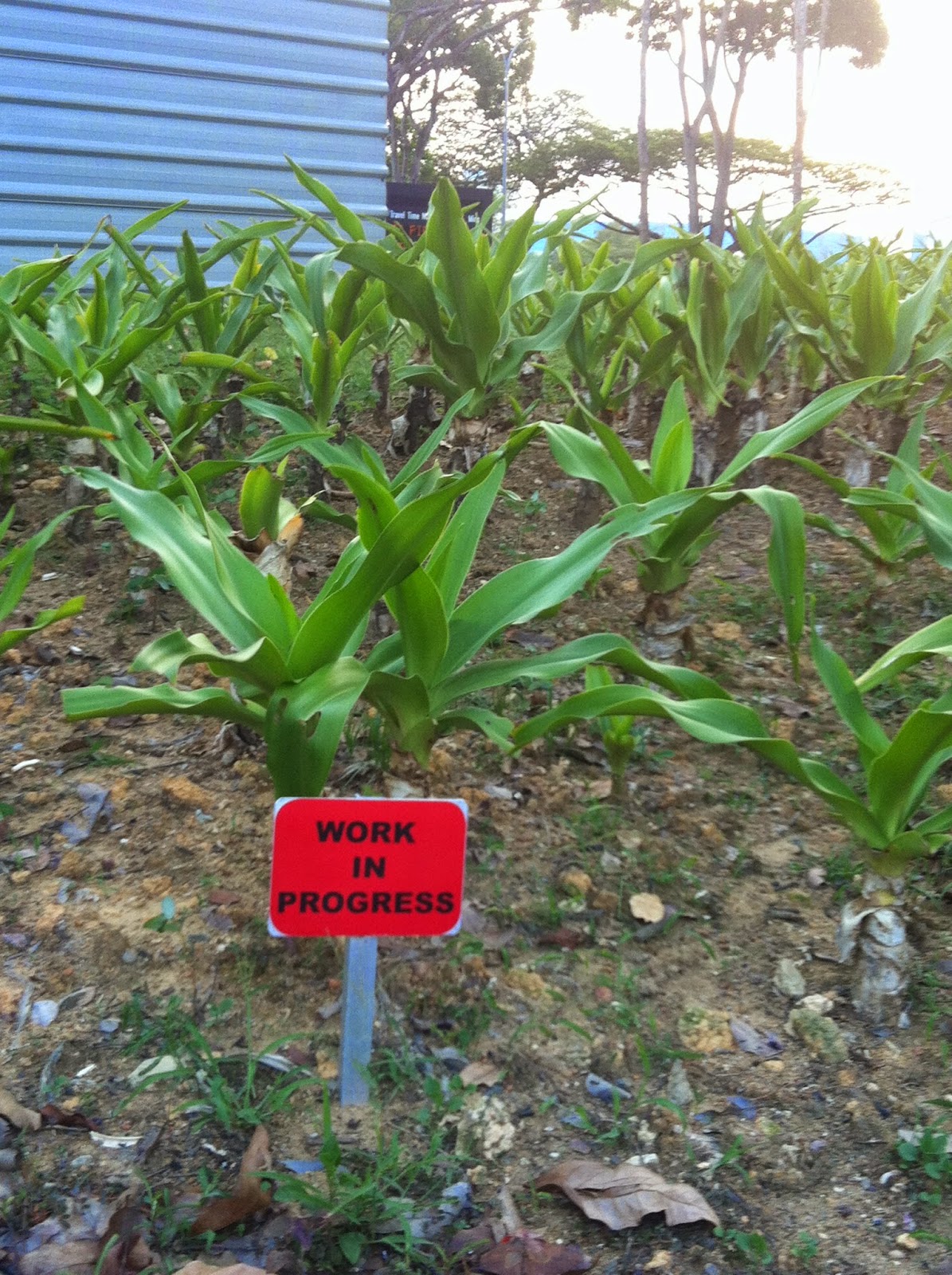 |
| Real chickens! In Singapore! Not even in a cage! Taken while on the way to Matt Hou's CNY dinner, somewhere near Jalan Jelita. |
 |
| I thought the sign was cute: N'aww, the plants are a work in progress. Later I realised that while taking this photo, my student card may have dropped out of my pocket, costing me $80 to replace. |
As I scroll through these pictures, I remember so much about the place I was when I took them, the people I was with, what we were doing. This one picture, taken in PPT class
 |
| Mm. Cookie. |
reminds me vividly of how classes were like, more than a class picture ever could: chill, with occasional visitors like Prof Guillem, Prof Fullwood and Isso (who made above cookie, and told us "although it's twice the size of a normal cookie, it's actually only one, so you're okay."). And the toasted-sandwich wrapper from the vending machine visible in the background... It all comes back to me. I can taste it. Feel the oil in my fingers as I pick up my pen to scribble a response to Jolanda, or Spandana, or Raeden, or Florence, speaking in the background. So many memories, unravelled from a single image.
And I realise that it's these little, candid shots that bring back the most memories, not the carefully posed and artistically framed portraits I (up until very, very recently) wished I had taken more of. When I first look at a random shot, it takes me a moment before I remember where I took it... Then that "oh yeah!" moment triggers a host of other memories: where I was, why I was there, why that image struck me as interesting or funny. These little snapshots - blurred, mundane, random - have so much power to vividly evoke the past. And isn't that the reason why we take photos? To commemorate an instant in time, an event, a place, an experience?
Perhaps these pictures are so effective because they have so much of the real about them. Life is messy. It's chaotic, it's random, it's arbitrary and unpredictable and awkward and organic. And that is precisely what these photos are. People talk about screen blindness - the interposing of a camera lens between you and the present moment; you become so focused on taking the perfect picture that you forget to enjoy your surroundings - but this is slightly different. These pictures aren't of anything central, but peripheral. I photographed the chicken on the way to Matt's party, not the party itself - yet that photo reminds me of the party. This is a sort of photographic metonymy, I guess. Looking at a small part (a chicken) evokes the whole (my busride, my walk to Matt's house, the party, the journey back).
But of course, the thing about this kind of photo is that it's idiosyncratic. I wouldn't show the cookie pic to my parents and say: "Here, look at my PPT class." Of course not. It would make no sense - the evocation of memory is unique to me, because I was the one who took the picture and who understands its significance. Sharing your memories with others is where "normal" photos come in: everyone gets together, someone snaps a selfie with an iPhone or takes a stunning shot with a DSLR, you post it on Facebook and Instagram, show it to your family and friends, people like it, etc. etc. etc.
But if you're too lazy for that - and if it's going to be just you looking through your old photos - then I'd say don't fuss too much about getting everything perfect. Take pictures of things that make you smile, or tickle your sense of humour. Don't worry too much about it. Life isn't perfect, so why should your photos be?

